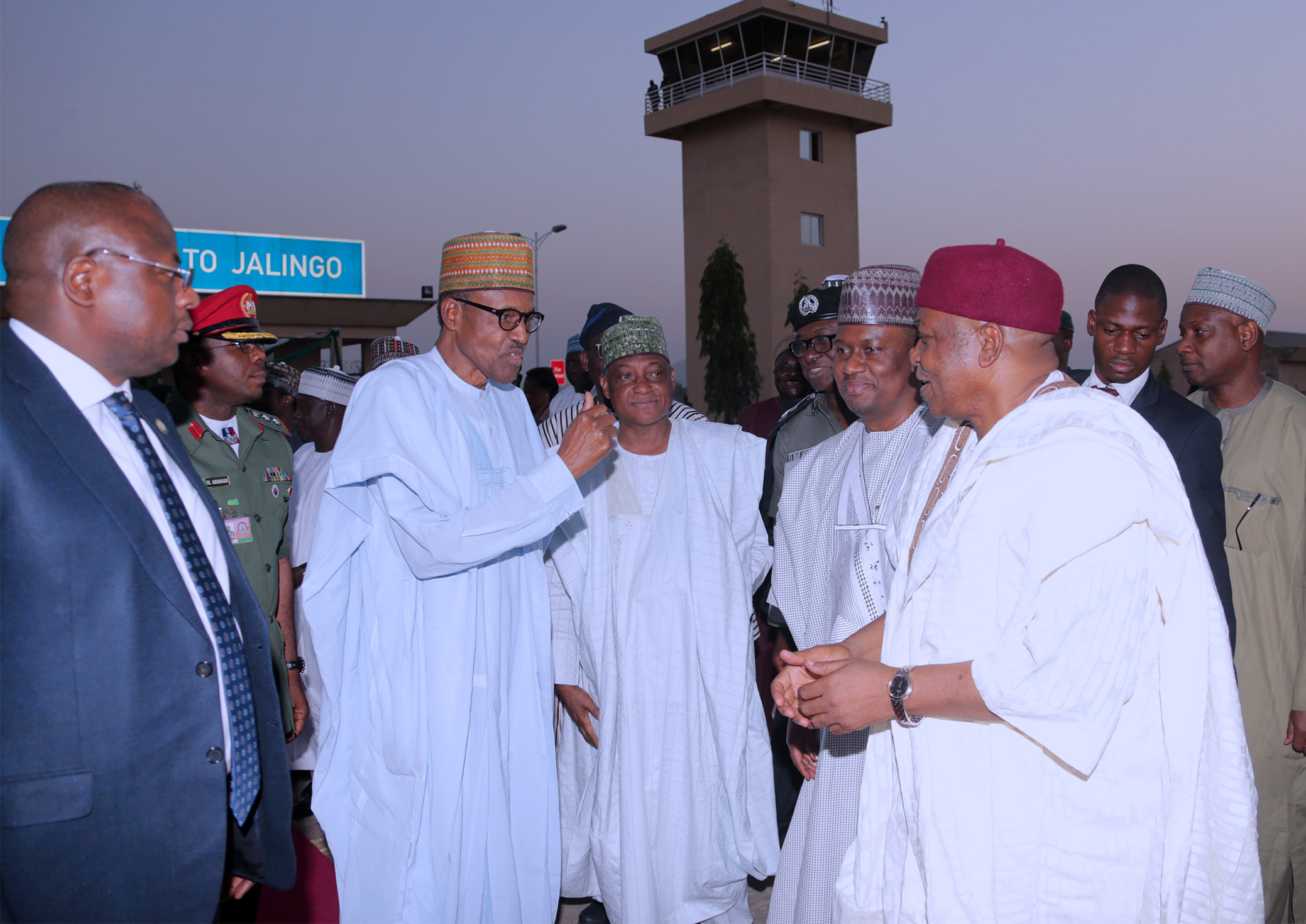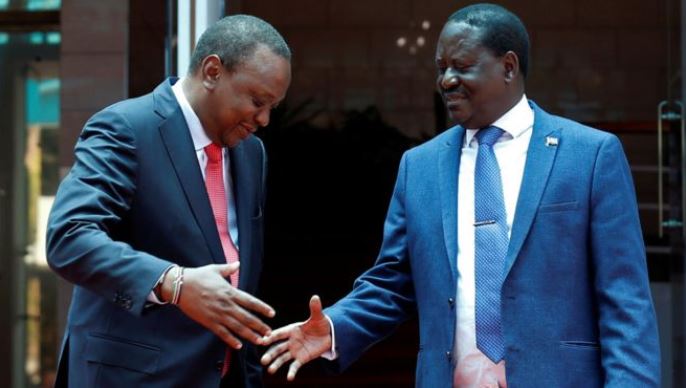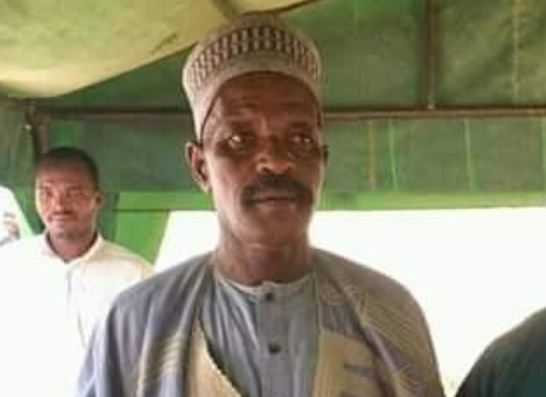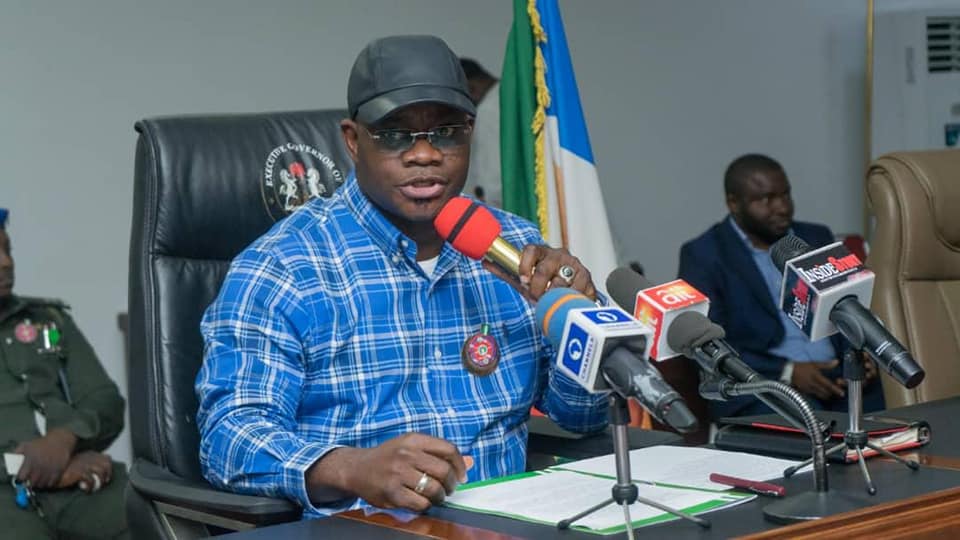PRESIDENT BUHARI IN TARABA. 4A&B. L-R. President Muhammadu Buhari, Minister of Defence, Brig Gen Mansur Dan Ali, Deputy Governor of Taraba State Engr Haruna Manu and The Governor Arc Dairus Dickson Ishaku during a visit to Jalingo Taraba State over current crises between the Herdsmen and Farmers in the Northen Nigeria. PHOTO; SUNDSY AGHAEZE. MAR 5 2018
BY ILIYASU GADU
The take off point for this article is on the call by Professor Itse Sagay, Presidential Adviser on Action against Corruption (PACAC), on the North to desist from its negative stance against the trending calls for the restructuring of the country.
Last week perhaps in response to that ,His Royal Highness Lamido Sanusi Lamido, the Emir of Kano at seminar which held at the Bayero University Kano, condemned the whole idea of restructuring as a tool by the political elite to advance their own political interest at the expense of the populace. Emir Sanusi said further that the political elite are latching onto the issue of restructuring to divert attention from their failure to provide for the people.
While the Emir is right in his views on the subject, I however believe that this does not in any way vitiate the compelling argument and necessity for a restructuring of Nigeria. Indeed ironically in the Emir’s argument against the subject which he dismissed as mere posturing on the part of the political elite he is actually throwing a challenge to Nigerians to look beyond the rather emotive and spiteful politicking that currently beclouds the debate.
Advertisement
My question then to my northern brethren is why are we so truculent in our opposition to restructuring? With our advantage in numbers and other factors why do we persist in thinking that if Nigeria were to be restructured we will be the losers?
The North’s objection to restructuring is anti-history because by historical antecedent, Nigeria’s restructuring has been going on before, during and after colonial period. It is recorded that this area we call Nigeria now has been in continuous flux with empires and states at different stages of political and social formation even before colonial rule. Thus at the dawn of the colonial era, there were roughly seven of such states; the Kanem-Borno Empire in the northeast, the Sokoto Caliphate in the northwest, the Kwararrafa confederacy and city states of the rivers Benue and Niger in the central area, the Oyo Empire, the Benin Empire, the Kingdoms and City states of the Niger Delta and the republican confederacies and entities of the Igbos in the hinterland with spiritual headquarters at Nri.
The first landmark restructuring was in the establishment of the northern and southern protectorates out of the seven pre-colonial states under colonial rule effectively obliterating their existence as standing entities. The Sokoto Caliphate which itself was a product of the restructuring of the pre-existing indigenous Hausa city states to form the caliphate in 1804 by Usman Dan Fodio and his followers who were largely of the Fulani ethnicity was abolished in 1903 following the defeat of Sultan Attahiru by British colonizing forces.
Advertisement
The next great restructuring was in 1914 which saw the amalgamation of the northern and southern protectorates thereby further tightening British control of the territory now christened Nigeria. A series of mini restructurings in the form of constitutional developments followed until Independence in 1960.
All through these, the British for their own designs in divide and rule took particular care to designate the area of the defunct Sokoto Caliphate as a special interest area against the interest of the majority of the people of the area on one level and against the interest of the other parts of Nigeria.
Thus while the people of the north led by such popular political icons like SaadZungur and Mallam Aminu Kano in comradeship with their brethren from the southern part of Nigeria were ready as far back as the 1950s to chuck the British out, the British in collaboration with their special interest partners in the north contrived to stymie the burgeoning political reawakening in the north through series of political gerrymandering. As it was then so it is now with the negative attitude to the restructuring debate by the north.
As the trajectory of Nigeria’s history has shown, opposition to necessary structural changes in the country by the north does not in itself prevent it from happening; it only delays it. The north sought to delay independence but it eventually came anyway. After independence during the first republic, the north baulked at strident calls for the break-up of the regions and creation of states and other necessary political and structural changes to the polity. Ironically the same north that was against creation of states in the north contrived to break up the Western region and create a Midwest region out of it. Again states creation eventually came to the country in 1967.
Advertisement
Nigeria like all young nations is still work in progress. The best of the country is still ahead of us and there is no other way we can get there without restructuring either wholesome or in instalments. And as our history has shown, we will either embrace it pro-actively now in a conducive atmosphere or be forced by extenuating circumstances to do it with all the consequences that entails. And as our post-independence political experiences have further shown the knee jerk manner in which we had had to handle most of our political challenges and developments all too soon become problematic.
In our present circumstances there is no part of the country that needs restructuring more than the north. It is the part of the country that class differences are sharply divided. The north as a whole lags behind in all areas of human development. Yet in human and material terms the north can be the treasure trove of the nation if its vast potentials are unlocked.
In this regard those in the north who are stalling the restructuring idea represent neither the region nor its true interest. Their opposition to the idea has more to do with their rather narrow concept of it as a southern political move to decrease or stop the flow of revenues accruing to the federation from oil exports which underpins Nigeria’s present political economy. If they cared for the north they would have seized the opportunity of the restructuring debate to develop and expand the concept into a massive socio-economic development agenda to liberate the mass of the people of the north from abject poverty, disease and general underdevelopment in relation to southern Nigeria.
It is this selfish, narrow and deliberate failure of the northern establishment to enact an enabling environment for the socio-economic progress of the region over the years that is manifesting in the gradual but inevitable breakdown of the social order in the north with its corollary in insecurity all over the region. By a touch of historical irony these are the same desperate social conditions that made possible the revolt of the popular masses of the Hausa city states against their oppressive rulers which Usmandan Fodio capitalize on to establish the Sokoto caliphate in 1804.
Advertisement
Iliyasu can be reached via [email protected] and 08035355706(SMS only)
Advertisement
Views expressed by contributors are strictly personal and not of TheCable.






